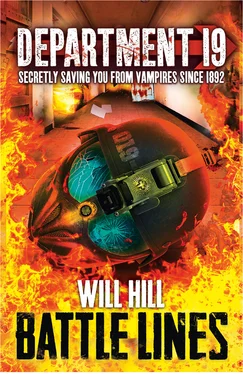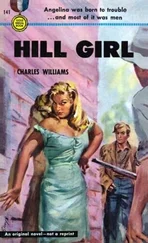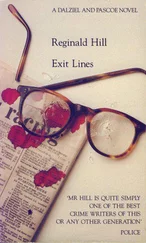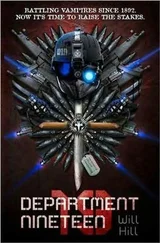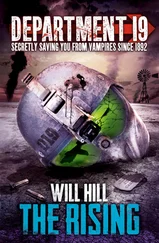Slowly, millimetre by agonising millimetre, Matt turned his head back in her direction, using the very edges of his peripheral vision, and saw, to his utter horror, that she was still looking at him, the smile on her face unchanged. He was rescued from these terrible, seemingly endless seconds by Professor Karlsson, who chose that precise moment to get to his feet, walk quickly to the front of the room and bang on the nearest desk with his hand. Instantly, the spell was broken; every man and woman in the room, including Natalia, turned their attention towards their Director, who looked distinctly uncomfortable as their gazes settled on him.
“Good morning,” he said, his voice unsteady. “It’s good to see us all together for the first time. Very good indeed.”
There was a murmur of approval from the watching scientists.
“Mr Browning,” continued Karlsson, locking eyes with the teenager. “Matt. Could you come up here, please?”
Matt’s colleagues turned to him, smiles and expressions of encouragement on their faces, and assumed the crimson hue of his face was the result of being singled out by the Director; only Natalia knew differently. Matt pushed his chair back and got nervously to his feet. He walked slowly to the front of the room and stood stiffly next to Professor Karlsson; his Director was looking at him with an expression of great pride, and Matt felt a smile rise on his face as the heat in his cheeks began to recede. He was suddenly incredibly happy; he felt full of purpose, full of righteous determination.
“Ladies and gentlemen,” said Karlsson, looking out across the ranks of the Lazarus Project. “We have in our hands an opportunity to do great good. To save thousands, perhaps millions, of lives and to eradicate a disease more deadly than that being worked on in any laboratory in the world. This Project represents the furthest frontier of scientific research, and each and every one of us should be proud at having been given the chance to be a part of it.”
Karlsson continued to talk, but Matt was no longer listening. Instead, his thoughts had turned to his mother, to how proud she would be if she could see him and what he was doing, and to the last month, which had been without doubt the happiest of his life.
For the first time in his life, he felt like he belonged. It was a dizzying sensation for Matt, a boy who had spent the majority of his life alone, ashamed of himself and unwilling to put anything more than the absolute minimum of himself forward; long experience had taught him that the more you allowed the world to know about you, the more it would use that information to hurt you. But he no longer believed that. Here, in this strange, unlikely place beneath the forests of eastern England, he had found true friendship, created under the most intense pressure, and a cause to which he was quite prepared to dedicate the rest of his life, if that was what was required.
“Get to work,” said Karlsson, and the round of applause that met the end of the Director’s speech roused Matt from his thoughts. He joined in, quickly enough that he was sure no one would notice he had been daydreaming, and as the men and women of the Lazarus Project began to return to their work, to the undertaking that each and every one of them had sacrificed the prospect of a normal existence for, Matt saw Natalia Lenski glance in his direction before she turned to her console, her pale cheeks flushed a beautiful, delicate pink.
3
SLOW NEWS DAY
WAPPING, LONDON
THREE MONTHS EARLIER
Kevin McKenna dropped the last of his cigarette into the warm can of lager on his desk and checked his watch.
It was almost nine thirty and he was the only member of The Globe ’s editorial team still in the office. England were playing Portugal in Oporto and everyone else was either across the road in The Ten Bells, cheering and drinking and swearing, or on their way home, grateful for an excuse to leave the office at a reasonable time without appearing lazy. McKenna wanted to be in the pub with his colleagues, but the phone call he had received an hour earlier had been simply too intriguing to ignore. So, instead, he was sitting in his office with the door shut and the smoke detector unplugged, waiting for a courier to bring him a package from a dead man.
The call had come from a lawyer McKenna didn’t know; it wasn’t one of the many to whom he regularly passed white envelopes of cash in return for five minutes alone with the case files of celebrity lawsuits and super-injunctions. The man had been polite, and had solemnly informed McKenna that his firm was discharging the estate of the late Mr John Bathurst. There had been a long pause, which McKenna had clearly been expected to fill with gratitude, or sorrow, or both. But he had not known what to say: the name was utterly meaningless.
Then a flash of realisation had hit him, and he had laughed loudly down the phone.
The lawyer’s voice, when it reappeared, had a hint of reproach in it, but the man remained smoothly professional. He told McKenna that he had been left an item in Mr Bathurst’s will, an envelope, and asked whether he would like it couriered to him. In any other circumstance, McKenna would have told the man to put it in the post and made his way to the pub. Instead, he gave the lawyer The Globe ’s address and told him he would wait to sign for it.
You’re dead and you’re still causing me grief , he thought, lighting another cigarette. Mr John bloody Bathurst.
There was a simple reason why it had taken him a moment to realise he knew the name of the man who had remembered him in his will: he had only ever heard it spoken aloud a single time, and there was a reason for that as well.
It was Johnny Supernova’s real name, and his most closely guarded secret.
There had been a time when Kevin McKenna would have spat in the face of anyone who had dared to suggest that he might one day spend his time writing stories about minor celebrities for a publication as morally bankrupt and pro-establishment as The Globe .
This younger, slimmer, angrier version of himself had arrived in London in 1995 at the age of nineteen, his ears ringing with guitar bands and house music and his veins full of working-class fire, to start work as a journalist for legendary left-wing style bible The Gutter . He strolled into the magazine’s offices off Pentonville Road to be greeted by a receptionist more beautiful than any girl he had ever seen in his nineteen years in Manchester. She held open the door to the editor’s office and gave him a ridiculously provocative smile as he walked through it.
Sitting behind a huge glass desk, on which were arranged glossy colour spreads of the latest issue, was Jeremy Black. He wore a charcoal-grey suit, which McKenna knew without asking would be either Paul Smith or Ozwald Boateng, over a faded tour T-shirt for the Beatles. He glanced up as McKenna stopped in front of his desk.
“Beer?” he asked.
“Sure,” replied McKenna. It was barely eleven thirty in the morning, but he had no intention of looking like a lightweight in front of his new boss.
Black reached down and pulled two cans from a fridge that McKenna couldn’t see. He handed one over, then leant back in his chair and folded his hands behind his head. “I don’t want to see you in here more than a couple of times a week,” he said. “If you’re in the office, you’re not doing your job. Yeah? The stories are out there.”
“Got it,” replied McKenna, opening his beer and taking a long swig that he hoped was full of casual bravado.
“Leave your copy at reception. I’ll give you a call if it’s good enough.”
“All right.”
“I got someone to agree to show you the ropes. He’s going to hate you, and he’s going to treat you like shit, but he owes me about ten thousand words I’ve already paid him for, so that’s his bad luck. Yours too, probably.”
Читать дальше
